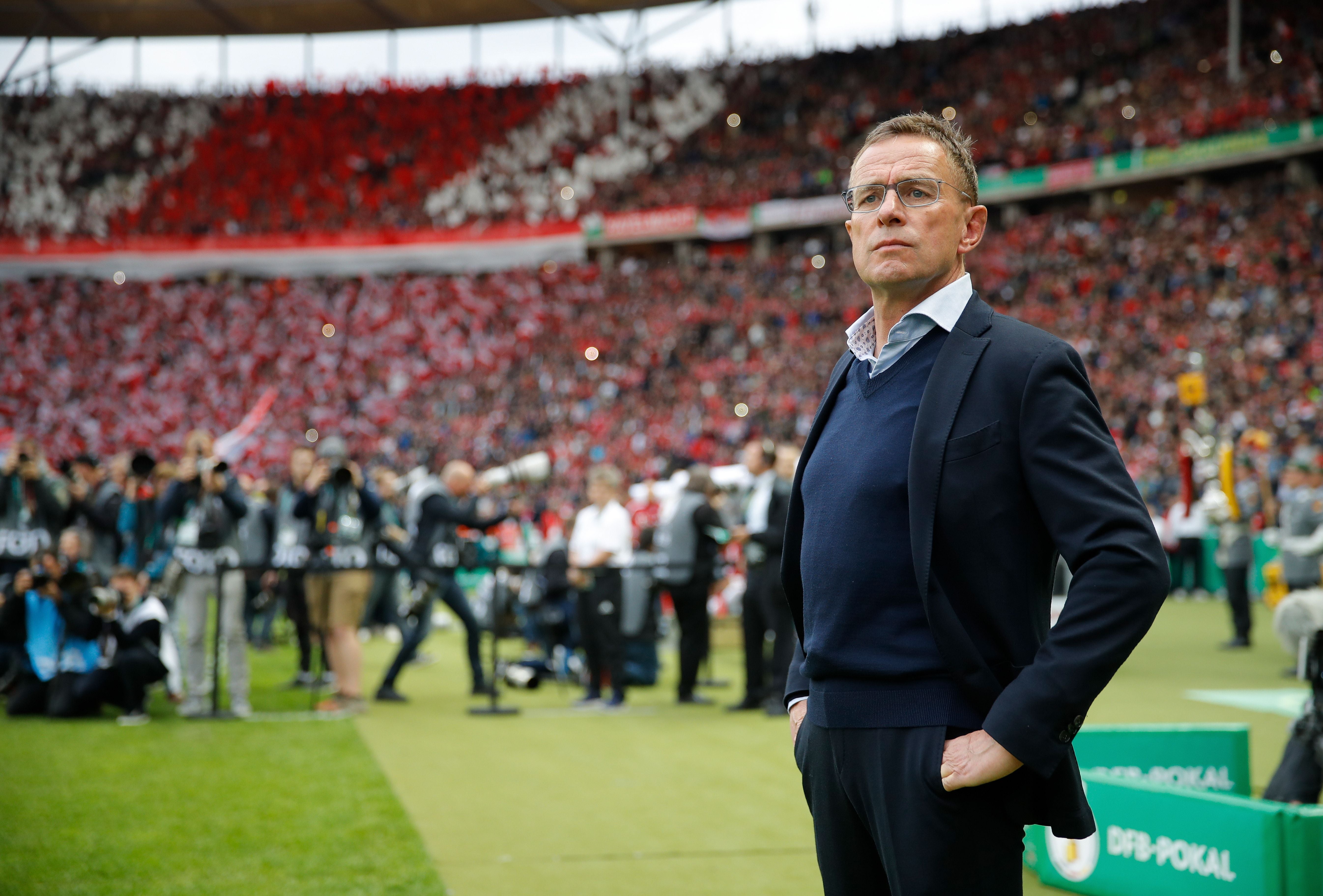‘He puts the puzzle together’: How Ralf Rangnick can transform Manchester United
As the architect of the Red Bull franchise, Rangnick catapulted the two clubs to the cutting edge of analytics, talent identification, trading, sports science, gegenpressing and training

Your support helps us to tell the story
From reproductive rights to climate change to Big Tech, The Independent is on the ground when the story is developing. Whether it's investigating the financials of Elon Musk's pro-Trump PAC or producing our latest documentary, 'The A Word', which shines a light on the American women fighting for reproductive rights, we know how important it is to parse out the facts from the messaging.
At such a critical moment in US history, we need reporters on the ground. Your donation allows us to keep sending journalists to speak to both sides of the story.
The Independent is trusted by Americans across the entire political spectrum. And unlike many other quality news outlets, we choose not to lock Americans out of our reporting and analysis with paywalls. We believe quality journalism should be available to everyone, paid for by those who can afford it.
Your support makes all the difference.In the boardroom where most of the big decisions at RB Leipzig are made, Julian Nagelsmann provided a window into why Ralf Rangnick – soon to be Manchester United’s interim manager – is so overwhelmingly respected in the inner sphere of the sport.
“He puts the puzzle together, he makes a club whole,” he said. “It’s sustainability with style and being really football smart.”
Nagelsmann was at the helm of Leipzig in early 2020 when he was sat down with The Independent for a lengthy interview, and used his fingers to point to every direction of the training base before adding: “Everywhere you look is Ralf’s influence, his ideas.”
Over in Salzburg, at the benchmark-setting academy that has inspired Liverpool’s new football HQ and the FC Bayern Campus, they have a joke that explains how much of what they are is owed to the man who made them: Rangnick.
The sprawling complex in Rechte Saalachzeile is playfully dubbed “Ralfsburg” – an ode to his vision in theory and practice, establishing the structures that have rendered Red Bull’s football franchise a sustainable success.
More so, during his nine years as sporting director for these two clubs before becoming head of development for the brand globally, Rangnick catapulted them to the cutting edge of analytics, talent identification, trading, sports science, gegenpressing and training.
Hoffenheim as you know them were constructed from his mindmap, from a third division club with no medical, scouting or operations departments to technological pioneers in Germany.
As an executive, there are few in the game as renowned for completely revamping and upgrading a club as shrewdly as the 63-year-old. As a manager, and in particular his spells at Hannover, Schalke, Hoffenheim and Leipzig, Rangnick tactically revolutionised German football.
He was one of the first coaches to turn to video analysts and sports psychologists, preaching rapid transitions and numerical superiority when those concepts were being derided as foolish fantasy by a “footballing professor”.
Rangnick’s “fast, proactive, attacking, counter-attacking, counter-pressing, exciting and entertaining” approach is the leading strand in the European game and has coloured the styles of Jurgen Klopp, Thomas Tuchel and Nagelsmann.
The greatest managerial minds of this generation are geared to his football ideas and the tentacles of his influence stretch well beyond those men: Marco Rose and Rene Maric at Borussia Dortmund, Southampton’s Ralph Hasenhuttl, Roger Schmidt at PSV Eindhoven, Jesse Marsch, Oliver Glasner at Frankfurt and more.
The list swells and is not confined to the dugout. Monaco’s sporting director Paul Mitchell sponged off Rangnick, as did Bayern’s head of youth Jochen Sauer.
The gifted youngsters his systems unearthed are now household names: Erling Haaland, Joshua Kimmich, Sadio Mane, Timo Werner, Dayot Upamecano and Roberto Firmino.
Rangnick has another healthy habit for a club: the ability to pick the perfect fit of a manager.
If this sounds like United are finally doing something seriously smart it is because they are. If there is wholehearted willingness to listen to Rangnick’s complete appraisal of the club and implement his suggested changes during the interim role and then two-year consultancy period, they will pivot from an entertainment brand to an on-pitch behemoth again.

From the outside looking in, he has been scathing in the past. “At any club, if you cannot get the right players, then you should at least not sign the wrong ones,” he told The Times of their recruitment. “You are in trouble if you do that in one or two or three consecutive transfer windows.”
Rangnick would add that “there is a lot of space for a vision for United”, which was a very diplomatic way to highlight a total absence of one.
Every executive, every coach, every backroom staffer, and every player has been granted the opportunity to extract goods from a genuine transformer.
Naturally, there will be a contingent who will want to sway this conversation to Rangnick’s haul of zero top-flight titles or European Cups. To them: read this from the top again. Rangnick’s trophies are everywhere you look: the aggressive high-press, the elite coaching minds, the decisive talents he introduced us to.



Join our commenting forum
Join thought-provoking conversations, follow other Independent readers and see their replies
Comments